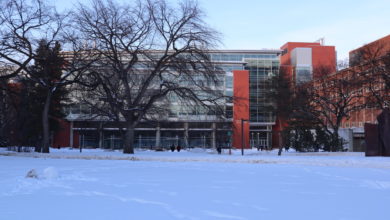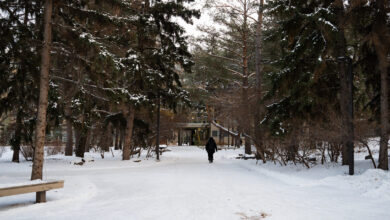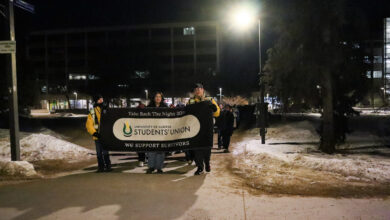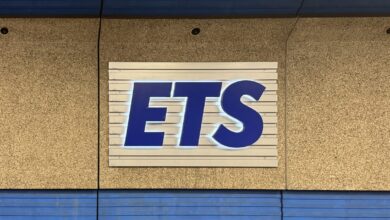Students ‘furious’ over the U of A’s ‘failure to meet basic standards’ for online learning, UASU says
The UASU has released a list of 13 demands to improve online learning standards for students.
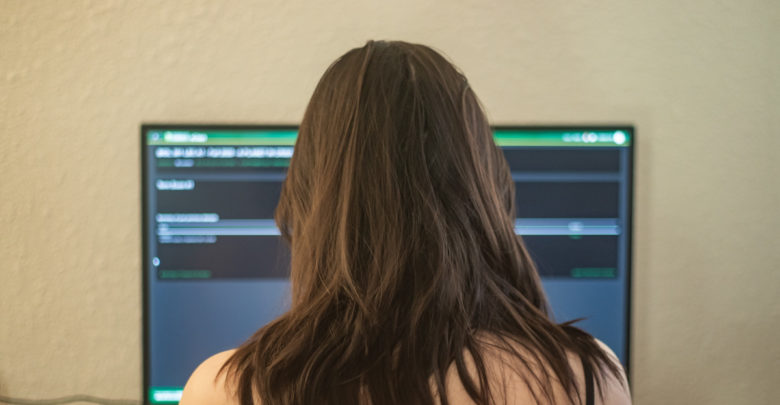 Christien Ford
Christien FordThe University of Alberta’s Students’ Union (UASU) has expressed dissatisfaction over how the University of Alberta has conducted online learning.
In a statement released on February 2, the UASU declared students “furious” over the “university’s failure to meet basic standards” for online learning. According to Abner Monteiro, vice-president (academic), the UASU supported the move to online learning at the beginning of the Winter 2022 semester, but under the condition that certain standards be met.
“The UASU supported the move to going online with the understanding of making sure that everyone would stay safe, but also that all of these online learning concerns were already resolved,” he said. “That’s what the commitment was from the university — to resolve a lot of these things — and make sure they wouldn’t be problems going forward.”
To improve online learning at the university, the UASU has released 13 demands:
- Shut down Smart Exam Monitor (SEM) and ExamLock online proctoring software for the rest of the semester, except where they are explicit accreditation requirements.
- Confirm that no remote student is required to take in-person midterms before campus reopens.
- Make a commitment to a predictable in-person return. Release a detailed step-by-step safe return plan, and make rapid tests and masks available for those on campus.
- Clearer plans, and communication of those plans, from all levels of university administration.
- Reduce shouldering of unexpected costs by giving students clear predictability for the rest of the semester.
- Immediately increase mental health support.
- Bolster funding for Accessibility Resources.
- Record all lectures.
- Make it clear to faculties that posting old recordings as most or all of their course delivery is unacceptable.
- Boost internet service in residence and across campus while setting clear standards for how internet failures during exams will be handled.
- Direct all practicum and experiential learning supervisors to immediately inform all participating students whether their placements this semester are still happening.
- Get rid of Exceptional Tuition Increase (ETI) proposals, particularly for faculties delivering an especially poor quality of education.
- Develop and broadly implement hybrid learning models wherever appropriate.
According to Monteiro, these demands are designed to be easily implementable by the university.
“We structure these demands in a way that we genuinely think the university can resolve a lot of these things, based on conversations that I, Rowan [Ley], and Talia [Dixon] have had with university administrators,” Monteiro said. “Some of these demands might be a little bit more extreme than some students would have liked to see, but we have given the university room for compromise in working out a lot of these things.”
In response to the UASU’s statement, Steven Dew, U of A’s provost and vice-president (academic), released a statement about resources and supports available for students.
“Adapting to remote learning amid a global health crisis has been difficult for many,” the statement from Dew said. “We have heard from students who are facing challenges with the remote experience this term, and the Office of the Provost is reviewing these reports. The Dean of Students Office offers many supports and resources to help students navigate remote learning successfully, and can work with students to resolve concerns or challenges with their courses.”
“I also encourage students to explore the variety of readily available university health and wellness supports to see where those services can help support them through these next few weeks — they include free, confidential counselling services.”
For students looking to support the demands made by the UASU, Monteiro recommended reaching out to administration within their specific faculty.
“Every student has the ability to send these [demands] to their faculty individually, to their dean, to their associate dean undergrad or associate chair undergrad, and let them know that these are concerns of [their] faculty.”

